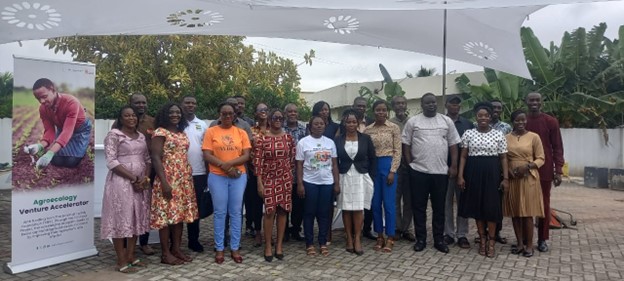By Juliet ETEFE
Experts have called for a shift toward agroecology as a sustainable alternative to conventional farming in the country.
This consensus was reached as they underscored the potential of agroecology to transform Ghana’s agricultural sector by promoting health, sustainability and economic empowerment.
Agroecology, according to the Food and Agriculture Organisation of the United Nations, helps to protect, restore and improve agriculture and food systems in the face of climate shocks and stressors.
This is because it is a holistic and integrated approach that simultaneously applies ecological and social concepts and principles to the design and management of sustainable agriculture and food systems
Health and environment
In an interview, Deputy Executive Director-Centre for Indigenous Knowledge and Organisational Development, Wilberforce Laate emphasised that agroecology is crucial for Ghana’s food sovereignty and the health of its citizens.
He expressed concerns over the widespread use of chemicals in conventional agriculture, stating: “We are ingesting many chemicals. Agroecology is a solution to that because we can produce in a more environmentally-friendly way, reducing all these chemicals we are consuming”.
He reiterated that agroecology promotes sustainable farming practices that protect the soil, maintain biodiversity and reduce the need for external inputs or synthetic fertilisers and pesticides.
He therefore highlighted the need for intentional efforts and investments in agroecology to safeguard the agriculture sector’s future.
“If we are not intentional about promoting agroecology, we risk losing our agricultural sovereignty and our cultural heritage. We need to make deliberate commitments, including government-sponsored training and research, to drive this change,” he noted.
He made this remark at the Innohub Agroecology Venture Accelerator Networking Event themed ‘Sustainable Agriculture: A Deep Dive into Agroecology’, which focused on promoting innovative practices and technologies in sustainable agriculture.
Political will as key driver
Mr. Edwin Kweku Andoh Baffour, Communications Director-Food Sovereignty Ghana, on the other hand reinforced the need for a robust engagement strategy to sensitise the public on benefits of agroecology.
He pointed out that “technology and political will can drive sustainable agriculture and agroecology”, and urged stakeholders to think about food production with the same seriousness they afford other sectors.
Mr. Baffour also advocated for greater youth involvement in agroecology to preserve locally sustainable agricultural practices and food sovereignty.
“The future is bright for agroecology…but it depends on how quickly we are willing to embrace it and scale it up,” he stated.
Economic empowerment
From an entrepreneurial perspective, Ms. Rosemond Afua Afful, CEO-Ayden Ventures and an agroecology farmer, emphasised the economic empowerment potential of agroecology for local communities.
Having switched from chemical-based farming to agroecology and utilising local seeds for about seven years, she shared her experience, saying: “I realised agroecology was the only way to ensure the sustainability of my business. It offers cost savings – especially in the availability of inputs like seeds, which are becoming increasingly expensive.”
She called for practical demonstrations and evidence-based approaches that convince more farmers to adopt agroecological practices.
She said: “We need to engage experts with proven results, invest in those who have successfully implemented agroecology and support them with funding and markets”.
She also highlighted the challenges faced by agroecology farmers, including lack of access to local seeds and the need for government support to certify and produce indigenous seeds.










